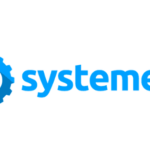b2b ecommerce solutions
B2B e-commerce, or business-to-business electronic commerce, refers to the buying and selling of goods and services between businesses over the internet. There are many different B2B e-commerce solutions available, each with its own unique set of features and capabilities. Some common features of B2B e-commerce solutions include:
1.Catalog management: The ability to create and manage a catalog of products or services, including descriptions, pricing, and availability.
2.Order management: The ability to process and track orders, including invoicing, payment processing, and shipping.
3.Customer relationship management (CRM): Tools to help businesses manage customer relationships, including tracking customer interactions, managing customer data, and analyzing customer behavior.
4.Supply chain management: Features to help businesses manage their supply chain, including inventory management, procurement, and logistics.
5.Marketing and sales tools: Marketing automation tools and sales lead management tools to help businesses generate and nurture leads and close sales.
6.Analytics and reporting: Tools to track and analyze data related to e-commerce performance, such as website traffic, conversion rates, and customer behavior.
Some popular B2B e-commerce solutions include Magento, Shopify, and Salesforce Commerce Cloud. It is important to carefully research and compare different solutions to find the one that best meets the needs of your business.
here is more information about B2B e-commerce solutions:
7.In addition to the features mentioned above, many B2B e-commerce solutions also offer a range of integrations with other business systems and tools. For example, you may be able to integrate your e-commerce platform with your enterprise resource planning (ERP) system or customer relationship management (CRM) system to streamline processes and improve efficiency.
8.Another important aspect of B2B e-commerce is the ability to handle large orders and complex pricing structures. Many B2B e-commerce solutions offer features such as volume discounts, tiered pricing, and custom pricing quotes to help businesses negotiate and finalize large orders.
9.Some B2B e-commerce solutions are designed specifically for certain industries or types of businesses, such as manufacturing, wholesale, or distribution. It is important to choose a solution that is tailored to the needs of your business and the products or services you offer.
10.Finally, security is a critical concern in B2B e-commerce. Look for a solution that offers robust security measures, such as encryption, secure payment processing, and fraud protection.
Overall, a good B2B e-commerce solution can help your business streamline operations, improve customer relationships, and drive growth. It is important to carefully research and compare different options to find the solution that best meets the needs of your business.
b2b ecommerce examples
B2B e-commerce refers to the buying and selling of products or services between businesses over the internet. Some examples of B2B e-commerce include:
1.Wholesale distributors selling bulk quantities of products to retailers.
2.Manufacturers selling directly to other businesses, such as other manufacturers or distributors.
3.Businesses purchasing office supplies or equipment online.
4.Online marketplaces that connect buyers and sellers in specific industries, such as healthcare or construction.
5.Software as a service (SaaS) companies selling subscriptions to their software to other businesses.
6.Consulting firms offering services such as marketing or accounting to other businesses.
7.B2B e-commerce can also include the sale of digital products, such as ebooks or online courses, to other businesses.
8.A restaurant chain purchasing ingredients or equipment from a supplier online.
9.A clothing manufacturer selling to clothing retailers through an online portal.
10.A construction company purchasing building materials from a wholesaler online.
11.A company selling promotional items, such as branded pens or mugs, to other businesses.
12.A financial institution offering online banking or payment processing services to other businesses.
13.A transportation company selling logistics services to other businesses, such as freight forwarding or warehousing.
14.A marketing agency offering online advertising or social media management services to other businesses.
15.An HR company offering online training courses or talent management software to other businesses.
B2B e-commerce has become increasingly popular in recent years due to the convenience and efficiency it offers to businesses. It allows companies to easily compare prices, place orders, and track shipments online, saving time and resources.
open-source b2b ecommerce platform
There are several open-source B2B e-commerce platforms available, including:
1.Magento: Magento is a popular open-source e-commerce platform that offers B2B functionality. It has a wide range of features, including support for multiple stores and languages, customizable product catalogs, and the ability to create and manage orders, invoices, and shipping information.
2.Drupal Commerce: Drupal Commerce is an open-source e-commerce platform that is built on top of the Drupal content management system. It has a range of B2B features, including support for multi-currency and multi-language sales, customizable pricing and discounting rules, and the ability to manage customer accounts and orders.
3.OroCommerce: OroCommerce is an open-source B2B e-commerce platform that is designed specifically for B2B businesses. It has features such as support for multiple stores and languages, customizable product catalogs, and the ability to manage customer accounts and orders.
4.PrestaShop: PrestaShop is an open-source e-commerce platform that offers B2B functionality through its B2B Addon module. It has features such as customizable product catalogs, the ability to create and manage orders and invoices, and support for multiple languages and currencies.
5.OpenCart: OpenCart is an open-source e-commerce platform that offers B2B functionality through its Multi-Vendor extension. It has features such as customizable product catalogs, the ability to manage orders and invoices, and support for multiple languages and currencies.
It’s important to note that while these platforms are open-source, they may still require some development work and customization to meet the specific needs of your B2B business.
b2b ecommerce website
A B2B e-commerce website is a website that is used by businesses to buy and sell products or services to other businesses over the internet. B2B e-commerce websites typically have features and functionality that are specific to the needs of businesses, such as:
1.Customizable product catalogs: B2B e-commerce websites often have large product catalogs with detailed product information, such as technical specifications, pricing, and availability. These catalogs can be customized to show only relevant products to specific customers or user groups.
2.Account management: B2B e-commerce websites often allow customers to create and manage their own accounts, including setting up billing and shipping information, tracking orders, and viewing order history.
3.Order management: B2B e-commerce websites typically have robust order management systems that allow customers to place and track orders, view invoices, and manage shipping and delivery.
4.Pricing and discounting: B2B e-commerce websites often have the ability to set custom pricing and discounting rules for specific customers or user groups.
5.Integration with business systems: B2B e-commerce websites may be integrated with other business systems, such as accounting or inventory management software, to automate and streamline processes.
Overall, a B2B e-commerce website is designed to make it easy and efficient for businesses to buy and sell products or services online.










